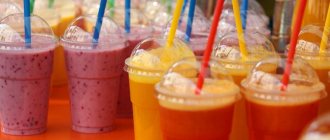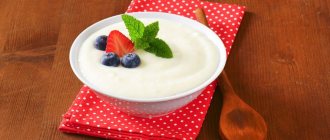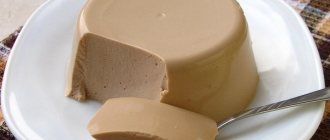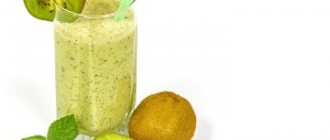The topic of the effects of fructose on the human body remains open. Scientists in the field of nutrition conduct discussions and put forward various theories, often contradicting each other.
Like scientists, Internet users on forums in discussions of weight loss methods build two opposing camps - advocates and opponents of the use of fructose in various weight loss methods. Chatters and forum users cannot come to a common opinion, which greatly complicates the task of those who want to know how fructose affects weight loss.
There are beneficial properties of fruit sugar that are not questioned in the scientific world. First of all, it does not cause caries and is an excellent preventive measure for oral diseases. The causative agent of caries are microorganisms in the oral cavity that actively develop in the presence of glucose. Without glucose, the number of microorganisms that contribute to the development of caries is reduced, which means the danger of its occurrence is minimized.
The obvious advantage is that fructose is hypoallergenic. Of course, an allergy to glucose is rare, but if we talk about allergies to fructose, the risk of its development is reduced to 0. Moreover, fructose can replace glucose in diabetic diseases. The fact is that fructose monosaccharide does not increase insulin levels in the blood, so it can be consumed in mild forms of diabetes.
Fructose instead of sugar for weight loss: reviews
For people with diabetes, it is generally accepted that fructose is best suited as a sweetener. Now there are many products that are suitable for diabetics, since their main component is fructose.
This component is necessary for a diabetic diet, because fructose is easily absorbed by the body's cells, without requiring the additional participation of insulin. At the same time, many tests have been carried out indicating that fructose is not absorbed by organisms like glucose and can worsen the situation. Using fructose as a sugar substitute will have side effects.
Fructose in diet
People who have diabetes should follow a diet, since fructose and sweeteners can contribute to rapid weight gain. Fructose can be used for baking and compotes.
But during a diet for diabetes, you can use no more than 40 grams of fructose per day. Many people believe that fructose has no effect on weight, but in fact, it contains almost twice as many calories.
Attention!
It is worth remembering that consuming fructose can cause extreme hunger, increasing ghrelin levels and metabolism. Fructose itself turns into fat when broken down by liver cells.
As a result, it can provoke various diseases of the cardiovascular system.
Fructose and obesity
Enter your sugar level or select your gender to receive recommendations Searching in progress Not found Searching in progress Not found Searching in progress Not found
Fructose has a strong effect on the body, complicating metabolism, and many doctors believe that this harm is not justified, since fructose does not contain any useful substances. It has the ability to cause fatty liver, which affects the development of insulin resistance.
Frequent use of fructose in the diet, especially during a diabetic diet, affects insulin resistance, which reduces the level and life expectancy. Doctors recommend not using fructose during the diet, but replacing it with sucrose. Such methods will promote proper metabolism.
Fructose can raise the glycemic index and cause obesity quickly, which can take several months to 1 year in some people. In this case, the metabolism is severely disrupted, and diabetes begins to cause complications.
Among the most serious diseases that obesity can cause from taking fructose are heart disease, heart attacks, vascular blockages, and blood clots. Heavy weight puts a lot of stress on the heart system, which can cause death.
The main thing to remember is that diabetes affects all organs of the human body, and the disease must be treated comprehensively to avoid possible complications.
Doctors recommend, in addition to consuming high-quality sweeteners, eating 5-6 small meals throughout the day to increase metabolism and fight obesity.
Under no circumstances should you allow yourself to go hungry or take long breaks between meals.
Fructose and insulin resistance
Back in the 80s, doctors came to the conclusion that fructose affects insulin resistance, greatly increasing a person’s weight. Very quickly leads to obesity.
Even within a few days, a person's dependence on insulin increases by 20-30%, even on a low-carbohydrate diet.
Important!
Pregnancy is a contraindication to the use of fructose in a diet, since the effect on the body can lead to serious consequences.
After many studies, it was revealed that diabetes with such a large amount of sugar and sweeteners could soon become an epidemic.
Honey during a diet for diabetics
Patients who have any type of diabetes can use honey as a sweetener. Many call this the Kremlin method, but it is important to remember that honey can increase glycogen, which is harmful for stage 2 diabetics.
During the diet, honey can be consumed no more than 2 tablespoons. Honey in combs is suitable as a dietary product; it is safe and contains an acceptable level of sugar. It does not require mandatory insulin injections.
Honey contains a natural component that helps process glucose. You cannot take honey without instructions and examination from a doctor. If you buy honey, you need to be sure of the seller, as many of them mix sugar into the honey.
Therefore, it is better to buy such a product in a specialized store.
Diet for diabetes
Levulose is often used instead of sugar for weight loss, but after such a diet, many leave negative feedback, as monosaccharides increase, weight increases and metabolism is disrupted. The value of such a diet is low.
Doctors recommend that if you have diabetes, you should not use artificial sweeteners, artificial fructose, which contains large amounts of starch and sugar beets.
This is especially true for people who suffer from stage 2-3 diabetes. At an early stage, you can use natural sweets with a small amount of sucrose and fructose.
And also avoid sugary carbonated drinks while dieting.
During the diet, you can use sugar substitutes that do not cause such harm to the body as fructose. Among the most popular are: Erythritol and Maltitol. They are well absorbed by the body and do not cause rapid weight gain.
The sugar-free diet itself should consist of natural products, mostly vegetables, dairy products, legumes, lean meat or fish. The diet may include coffee, baked goods and natural oils.
But all these products can be consumed only on the recommendation of a doctor. If the diet is aimed at losing excess weight, then the use of sweeteners is excluded.
In addition, the diet should contain only sweet and sour fruits (if the body’s acidity is normal).
The doctor can create an approximate diet, and the diet itself cannot last longer than 3-4 weeks. After which you need to undergo a medical examination and take a blood test. During a diet for diabetes, you need to exclude alcoholic beverages, hot sauces and seasonings, as well as various smoked products from your diet.
On topic: Exercises for losing belly fat with a jump rope
Using fructose during a diet will not lead to positive results.
As you know, during diabetes mellitus the use of fructose is not advisable, since it can cause severe obesity in a short time.
Doctors leave negative reviews about this sweetener and warn about the consequences. The body's reaction when taking fructosine may vary, but experts note a serious worsening of diabetes.
Advice!
Information about fructose is provided in the video in this article.
Enter your sugar level or select your gender to receive recommendations Searching in progress Not found Searching in progress Not found Searching in progress Not found
Source: https://diabetik.guru/products/fruktoza-pri-diete.html
What products contain
Contained in berries and fruits, nuts, cereals. The largest amounts are found in the following products:
- honey;
- dates;
- raisin;
- grape;
- pears;
- apples;
- cherries;
- bananas;
- strawberry;
- kiwi;
- persimmon;
- cabbage (cauliflower and white cabbage);
- broccoli;
- corn.
Often used in the production of marshmallows, ice cream, halva, chocolate, other confectionery products and carbonated drinks. Using the product when making baked goods helps make it airy and fluffy and preserves freshness for a long time. This allows patients with diabetes to consume such products.
For your body to function properly, you need to eat:
- honey (10 g);
- dried fruits (a handful);
- several fresh fruits.
Do you know if fructose helps you lose weight?
Women go to great lengths in pursuit of an ideal figure: they limit themselves in food, give up bad habits and, the worst thing for any woman, they stop eating sweets. After all, all diets unanimously say: sweets are strictly prohibited!
What to do if it’s impossible to live a day without sweets? I would like to drink at least a cup of sweet tea or coffee, but the desire to be beautiful is overwhelming. In this case, fructose comes to the rescue. It turns out that fructose is the sweetest monosaccharide in nature. You can find it in honey and fruits.
Fructose combined with glucose forms nothing more than ordinary table sugar. If we list the beneficial properties of fructose, it is worth noting that it is absorbed by the intestines much more slowly than glucose, the risk of caries is reduced by 30% and, moreover, fructose does not cause allergies.
Fructose is not very high in calories compared to sugar, but it tastes sweeter than sugar, so less of it is needed.
But this does not mean that you can lose weight with fructose. Research by scientists has shown that fructose, unlike glucose, can pass from the blood into human tissue cells without the participation of insulin.
For this reason, it is stored as fat much faster than glucose. This suggests that if a person decides to lose weight, fructose is not the best assistant in this matter.
After all, the effects of glucose and fructose on the human body are completely opposite: if glucose causes a feeling of fullness, then fructose, on the contrary, stimulates the appetite.
Attention!
The best alternative is to lose weight with fruits that are low in fructose. For example, fruits such as banana, raisins, dried apricots, dates contain large amounts of fructose and are also very high in calories. By consuming them, it is simply impossible to lose weight, but gaining weight is easy.
But by including pears, pineapples, kiwi and grapefruit in your daily diet, you can achieve good results. These fruits are low in calories, burn fat well and help activate the liver.
But if you decide to lose weight with the help of fruits, you must adhere to simple rules: do not mix fruits with each other, eat them separately, do not drink water and do not overeat in order to avoid disturbances in the functioning of the gastrointestinal tract.
The body of many people is not able to absorb fructose in full, especially if it comes in large quantities. For a person, this is approximately 50 grams of fructose, which corresponds to four apples eaten or 500 grams of juice drunk. The consequences are bloating. Conclusion: a large amount of fruits and juices are not always good for the body.
Of course, in addition to the negative properties of fructose, its beneficial qualities should be noted: products that contain fructose remain fresh longer, fructose enhances the aroma and taste of fruits, helps the liver fight the effects of alcohol, has tonic properties on the body, promotes rapid recovery after physical and mental stress and is indispensable for people suffering from diabetes in the form of a sweetener. Previously, fructose was a rather scarce product and was used exclusively for medicinal purposes. But then they learned to isolate it from sugar beets and now it is available to everyone. It is sold in the form of a white crumbly powder and has a sweet taste.
Since fructose tends to absorb moisture well, it must be stored in a dry, cool place. However, vegetables and fruits are not the main culprits in supplying fructose to the human body.
It is much more dangerous for the body to consume sweet carbonated drinks, flour products, ketchup and corn syrup due to their very high fructose content.
Of course, for those people who have a desire to gain weight, fructose will provide an irreplaceable service, but here you also need to be very careful.
Important!
Excessive consumption of foods containing fructose can lead to obesity. But this does not mean that those who decide to lose weight should immediately stop eating honey, fruits and foods that contain fructose.
If you do not consume several kilograms of apples, grapes, bananas and dates a day, it is impossible to harm the body. The body suffers only from excessive consumption of foods containing fructose. However, fructose alone should not be blamed for the problem of obesity.
The role of poor nutrition, alcohol consumption and a sedentary lifestyle in this problem is quite large.
It’s worth switching to a balanced diet, counting the calories consumed, limiting the consumption of alcohol and confectionery, including physical activity in your daily routine, and excess weight will go away quickly and irrevocably.
Recent studies by American medical scientists have shown that fructose negatively affects memory, and what’s worst is that pancreatic cancer cells actively use fructose for their growth and spread throughout the body.
There is currently no clear answer to the question of the benefits or harms of fructose. It’s good to know moderation in everything. And in small quantities, fructose will not cause harm to the body. But fructose should not be used as a means of losing weight. There are many other, more effective ways that are also not harmful to health.
Source: https://lady.qip.ru/catalog/a-vyi-znaete-pomogaet-li-fruktoza-pohudet-
Factor #4: Quality of research, or who was experimented on
Frankly, the quality of the research conducted to date leaves much to be desired. Scientists themselves admit that they do not fully understand the mechanisms by which fructose can negatively affect human health, for example, cause insulin resistance.
Most experiments were carried out on rats and other animals, whose metabolism is significantly different from that of humans. At the same time, the poor animals were simply fed fructose. Not surprisingly, excess fructose caused them lipid profile abnormalities, insulin resistance and other problems.
Moreover, in the experiments, the subjects were given only fructose, which in real conditions is very rarely consumed in isolation - without glucose. Therefore, only studies in which fructose and glucose are consumed together can provide insight into the metabolic fate of the two sugars.
Another interesting fact is that rats are able to tolerate diets with an amount of fructose that makes up more than 60% of the total calorie content of their diet. People even consuming fructose at a level of 10% or more of total calories in the absence of glucose can develop digestive disorders. Therefore, purely physically, we simply will not eat such an amount of fructose that the gastrointestinal tract of a rat can handle.
Fructose is more fattening than mayonnaise
© Corbis/Photas.ru
Those who are afraid of gaining weight and therefore run away from fat on their plate like hell from incense can relax. Whether you get fat over the years or not depends on the amount of calories you get in the form of proteins and carbohydrates, and not fats at all. Even their varieties - saturated or unsaturated - do not affect the figure in any way.
This stunning discovery was made by Professor Nita Foroui and her colleagues from the Cambridge Institute for Metabolic Research after one of their large-scale scientific studies. For ten years, they monitored the diet of 90,000 men and women from six European countries.
On average, fats made up 31.5–36.5% of the test subjects' diet, and the average weight gain per year was about 125 g per brother.
Advice!
At the same time, scientific analysis showed that weight gain over the years was in no way related to how much fat they received from food, as well as what kind of fat - saturated or unsaturated.
But this does not mean at all that now you can eat as many fatty foods as your heart desires, Mrs. Foroui hastened to warn.
The problem is not only excess weight, but also that blood vessels can suffer from excess cholesterol: “It would be absurd to allow yourself to eat fatty foods in unlimited quantities, considering how much harm a diet rich in trans- and saturated fatty acids can cause to the vessels of the heart and brain.” fats."
The healthiest way to avoid weight gain, according to the authors of this scientific work, is, firstly, to reduce the consumption of alcohol, fast food and processed foods high in sugar and fat, secondly, to ensure that portions are small and, thirdly, to exercise regularly yourself physically.
Let me remind you that the daily amount of fat in our diet should not exceed 25–30% and it is recommended to get it with fish (mackerel, salmon, trout), vegetable oil (extra virgin olive, flaxseed, rapeseed) and nuts (walnuts, pistachios, Brazilian, almonds, pecans).
On topic: Milkshakes for weight loss
Fructose: benefits and harms
In parallel with the British, biochemists from the University of California presented their small study.
Judging by their experiments, fructose, a common sweetener of corn origin (found in everything from chocolates and soda to yogurts and muesli mixes), not only adds extra pounds to the body, but also provokes the development of diabetes and cardiovascular diseases.
After ten weeks of the fructose-rich diet, the volunteers began to develop more fat cells around their hearts, livers and other major organs, as well as the first signs of digestive problems leading to diabetes and heart attacks. “We're concerned that children are particularly vulnerable because they are more likely to eat foods with this sweetener,” says Kimber Stanhope, a molecular biologist and author of the fructose study.
Attention!
As I understand it, fear of fats is becoming a thing of the past, but fructose threatens to become a new phobia for those losing weight in 2010.
Source: https://www.jv.ru/food/10309-fruktoza-polnit-silnee-majoneza.html
Scope of application
Ready-made fructose for diabetics (the benefits and harms of which we discuss in detail) is sold in powder form in various jars and packages. In this form, the product is used to sweeten tea and for baking. Its use is also popular for preparing special fructose jam for diabetics.
Based on this delicacy, a large number of various confectionery products are made, specially intended for diabetics. These are primarily candies, but also cookies and even chocolate.
Fructose instead of sugar - think, isn’t it time to replace the source of sweets?
Hello, my dear readers!
Recently I talked about a delicious dietary dessert - baked apples with cottage cheese. Do you know what they are called in our family?
Rejuvenating! : )
So, in that recipe of mine, fructose was added instead of sugar. And they asked me: why fructose?
Today we will talk about it in more detail. And I will share another recipe - as quick, simple and tasty as rejuvenating apples! ; )
Why do I love fructose?
Well, for example, because it is a natural product. It is found in fruits, berries, honey. In addition, it is 2 times sweeter than sugar!
Do you like to drink coffee in the morning?
I love it very much! Hot, aromatic, invigorating! Do you want it with fructose or sugar? : )
I used to add 2 teaspoons of sugar to a mug of coffee (33 kcal). And now just half a spoon of fructose (8 kcal)! Try it! See for yourself that the sweetness will be the same :)
What else is fructose good for?
It, unlike sugar, does not provoke caries! I usually add fructose to my kids’ tea, compote, fruit juice, and other drinks and dishes.
And here we come to one of the main “fructose” advantages :)
The fact is that the glycemic index of fructose is 20, and sugar is 70.
Do you see? 20 and 70!
Sugar becomes energy more than 3 times faster!
Such speeds may be good in some situations. For example, when a person is tired, but needs to make one more push.
And it's bad for children
Why?
Just imagine: your child ate something with sugar. Very soon the glucose level in his blood will rise sharply above normal! For about 30 minutes.
The baby suddenly receives a large portion of “fuel” and quickly begins to develop energy for movement.
Sugar makes children run, jump, jump and scream! And in this case it is almost impossible to stop them, to calm them down.
You've probably encountered this too? Unfortunately, many parents are not aware of this pattern. And every time they are surprised when the child becomes uncontrollable after dessert.
And after 30-40 minutes the glucose level will drop, and the baby will be unrecognizable. He will become lethargic, pale, sleepy, irritable and incomprehensible. All! All the energy received from sugar was burned.
The same thing can be seen in older children - for example, at school. At the beginning of the lesson, schoolchildren cannot sit still, they spin, jump up, and talk!
And towards the end of the lesson they sit with empty eyes and no longer hear or remember anything. What you were at school and what you weren’t is the same, right?
Fructose is absorbed slower than sugar
Therefore, the child will not have sudden mood swings and bouts of frantic activity. He will remain cheerful, cheerful, energetic for several hours in a row.
You can check it yourself! Give the children something with sugar one day and watch carefully how they behave.
And the next day, treat them to a fructose-based dessert. I assure you, you will be surprised! And easily decide which is better. : )
Speaking of desserts! I promised : )
I suggest making amazing homemade quick fructose jam!
Mix a glass of berries (can be frozen) and a tablespoon of fructose, bring to a boil and immediately remove from heat. Cool and - TADAM! – a portion of fresh berry deliciousness is ready! : )
By the way, it only has 74 kcal. How much sugar is added in regular jam recipes? In my opinion, most often one to one, right? ; )
Joy to you, goodies and health!
Olga Dekker.
Important!
PS Please write what you add to tea and coffee? Sugar, fructose or something else?
PPS Did you happen to miss our conversation about whether buckwheat and nuts can be considered protein foods? If anything, this important post is waiting for you here...
Olga Dekker on Instagram
Source: https://negoloday.ru/fruktoza-vmesto-sahara/
Is it possible to add fructose to cookies, baked goods and compotes?
The strong sweetness of fructose has led to it being used as a substitute for sugar in baked goods and drinks. The taste is similar, but the consumption is much less. If you decide to make cookies or a pie, then you need to know that you need to add half as much fructose as sugar. A big plus of this product: it does not crystallize as dynamically as sucrose, and baked goods remain fresh for a long time.
Doctors note that fructose in modest doses will not cause harm, the main thing is not to consume it a lot and regularly. So you can add it to cookies and pies, but be very careful.
Important! If fructose has been added to the dough, the oven temperature should be slightly lower than usual.
Do natural or synthetic sweeteners help you lose weight?
Many people who are overweight are wondering: Do sweeteners help you lose weight? If they really help, then it makes sense to replace all sugars in the diet with sweeteners.
This way, you won’t have to give up your usual sweets, and on the other hand, the weight will melt away. Unfortunately, it is necessary to immediately and unequivocally say that sweeteners do not help you lose weight.
On the contrary, as strange as it may seem, by eating sweeteners instead of sugar, there is a high risk of gaining extra pounds.
Why don't sweeteners help you lose weight?
Sweeteners were created to replace sugar. First of all, so that a person does not need to completely give up the usual sugar sweetness. To do this, you can use natural sweeteners such as fructose, xylitol, and sorbitol.
These sweeteners are only slightly inferior to ordinary sugar in terms of calories, but they differ very favorably in composition in that they do not cause a sudden increase in blood glucose in the body after taking them.
For this reason, they can be consumed by diabetic patients, who benefit from them.
As for helping those who want to lose weight, because... Natural sweeteners are almost the same in calorie content as sugar, so you won’t be able to lose weight by eating them.
Synthetic sweeteners are another matter. They contain almost 0 kilocalories and are much sweeter than sugar. It seems that they will definitely help you lose excess weight. However, it is not. Synthetic sweeteners do not increase blood glucose levels. Neither like sugar - quickly, nor like natural sweeteners - slowly.
On the subject: Nutrition for weight loss on training days
Synthetic sweeteners are not absorbed by the human body at all; they simply affect the taste buds. And the entry of glucose from the blood into the liver and storing it there in the form of glycogen is one of the necessary moments of saturating the body. When glycogen runs out in the liver, we feel hungry; when glycogen accumulates in the liver, we feel full.
It turns out that synthetic ones, while creating the illusion of replacing sugar, do not help the body achieve satiety. As a result, you want to eat much more often and all because glucose does not enter the blood. It was sweet, but no good. And as a result, the person again wants to eat, and he eats again, and gains extra pounds.
And, as noted above, we do not take into account the health problems that synthetic sweeteners can cause. But coverage of this issue is beyond the scope of this article.
Source: https://blogozdorovie.ru/pomogayut-li-saharozameniteli-pohudet/
Sugar substitutes for weight loss and dieting - natural sweeteners that are beneficial for the body
Scientists have confirmed the harmful effects of white sugar (refined sugar) on the human body, but we are so used to indulging ourselves with store-bought sweets! During a strict diet, the question often arises of how to replace sugar when losing weight, to decide what sugary substitute products of natural or unnatural origin can do. By eliminating only granulated sugar from your diet, you can get rid of several extra pounds of fat.
How to replace sugar with proper nutrition
To feel great, maintain health and good physical shape, you need to adhere to a balanced diet. You can replace sugar with a positive diet with the following products:
- berries;
- fruits;
- dried fruits;
- honey.
All these products contain a huge amount of natural sugar - fructose. Excess of any sugar leads to fat deposits, deterioration of the functioning of the mental-vascular system, and the formation of caries.
To make up for the shortage, a person will only need 2-3 medium-sized fruits per day, or a small handful of dried fruits, berries, and 2 teaspoons of honey.
The body can manage without these products; any food is broken down into glucose (a type of sugar), but the pathological craving for sugary foods, imposed in childhood, forces us to consume sweets.
How to replace sugar in baking
The diet does not require starvation and complete abstinence from sugary foods. Suitable sweets can be prepared using cottage cheese, finely ground flour, and the addition of dried fruits. You can replace sugar in baked goods with sweeteners of different origins:
- Vanilla sugar is replaced with vanilla extract, essence or powder.
- Brown sugar is less harmful, so a small amount can be added to baked goods; a little powdered sugar will not harm your figure either.
- Contraindication: these products are prohibited for people with diabetes and those losing weight on a strict diet.
What to drink tea with when losing weight
One of the most harmful meals is the so-called snack, consisting of tea or coffee and cookies, sweets... In one such sitting you can consume up to 600 kcal, which is a third of your caloric intake for the day.
First, develop the habit of drinking tea or coffee without sweets.
How can you replace sugar in drinks when losing weight? Tea for weight loss and other hot drinks can be sweetened with sweeteners, say, fructose, stevia, saccharin, etc.
Sweetener for diet
A sugar substitute is an effective method to lose unnecessary weight and get your body in shape, without eliminating sugary foods from your diet.
Sugar stimulates the production of dopamine and serotonin - the so-called happiness hormones.
Advice!
But a person feels high only for the first 15-20 minutes, after which a regression of strength and laziness sets in, because the body needs a lot of energy to reduce the level of glucose in the blood.
Sweeteners are low-calorie dietary supplements. Their calorie content is so low that it cannot be considered when calculating KBJU. They are slowly absorbed, preventing a sharp jump in insulin, unlike store-bought sweets. There are natural sweeteners for weight loss and those of chemical origin.
Natural ones include fructose, stevia, xylitol, sorbitol, and unnatural ones include cyclamate, aspartame, saccharin, acesulfame potassium, sucralose. Fascinating facts:
- Some manufacturers combine two or more types of substitutes (natural or chemical) in a certain ratio. Release form: tablets, powder, syrup.
- Substitutes are hundreds of times sweeter than ordinary refined sugar. One tablet is equal to 1 tsp. granulated sugar.
- Standard packaging with a dispenser weighing 72 g (1200 tablets) – 5.28 kg of refined sugar.
- Natural sweeteners are much more expensive, but nutritionists recommend using them for weight adjustment.
You can buy a sugar substitute for weight loss in a pharmacy, diabetic department of a supermarket, or online.
Fructose for weight loss
People suffering from diabetes are allowed to consume diabetic sweets containing fructose, but their number must also be severely limited. The daily intake of such sweets should not exceed 40 g. Fructose is often used instead of sugar when losing weight. Release form: powder, sachet and solution. Fructose can be added to drinks and sugary dishes.
Is it possible to replace sugar with honey?
If you have a choice between honey or sugar when losing weight, then definitely – honey. This product contains a lot of nutrients that have a beneficial effect on the human body.
You should not add honey to baked goods or heat it; tea’s beneficial substances are destroyed at high temperatures. Use up to 2 tsp.
honey per day or add to soft drinks, water, or dilute in warm tea.











